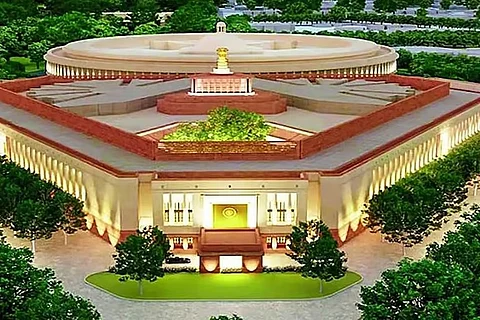

The National Policy on Biofuels–2018, as amended in 2022, advanced the target of achieving 20 per cent ethanol blending in petrol from 2030 to the Ethanol Supply Year (ESY) 2025-26 for the country as a whole, including Gujarat and Maharashtra. State-wise ethanol blending targets are not set, Suresh Gopi, minister of state in the Union Ministry of Petroleum & Natural Gas, told the Rajya Sabha on July 21, 2025.
He added that the Ethanol Blending Programme has shown steady progress in both the states, with Gujarat recording targets of 10.47 per cent in ESY 2021-22, 12.11 per cent in ESY 2022–23, 14.33 per cent in ESY 2023-24 and 18.95 per cent during ESY 2024-25, as on June 30, 2025.
Similarly, Maharashtra achieved 10.48 per cent, 12.25 per cent, 14.49 per cent and 18.84 per cent respectively during the aforesaid period.
The Government of Himachal Pradesh has framed the ‘Himachal Pradesh Minor Minerals (Concession) and Minerals (Prevention of Illegal Mining, Transportation and Storage) Rules, 2015’ for regulation and control of minor minerals as well as for prevention and control of illegal mining within the state, G Kishan Reddy, Union minister of coal and mines told the Rajya Sabha.
The data on ground water quality for Bihar indicates that the groundwater in the state remains largely potable. However, localised occurrence of certain contaminants, including heavy metals like arsenic, beyond the limits prescribed for drinking water use has been reported in some isolated pockets. In the analysis conducted during 2024, out of five samples tested in Darbhanga, only one has been found with arsenic beyond permissible limit. However, further detailed studies are required to ascertain whether people have been affected due to consumption of Arsenic contaminated ground water in Darbhanga, Raj Bhushan Choudhary, Minister of State for Jal Shakti told the Rajya Sabha.
Also, no rural habitations in Bihar are likely at the risk of consuming arsenic-affected groundwater, Choudhary added.
The Department of Water Resources, River Development and Ganga Rejuvenation under Ministry of Jal Shakti, Government of India, through the National Water Policy (2012), acknowledges the increasing hydrological variability associated with climate change and has outlined a range of adaptation measures to address these emerging challenges, Choudhary told the Rajya Sabha.
Around 124.3 million additional rural households have been provided with tap water connections as on July 16, 2025, under the Jal Jeevan Mission (JJM) – Har Ghar Jal.
Thus, as on July 16, 2025, over 156.7 million of 193.6 million rural households in the country, are reported to have tap water supply in their homes, V Somanna, minister of state for Jal Shakti told the Rajya Sabha.
Eighty-eight airports are operating on 100 per cent renewable energy, as on date, Murlidhar Mohol, minister of state in the Union Ministry of Civil Aviation, told the Rajya Sabha.
Airport operators including Airports Authority of India have installed solar power plants at various locations/airports for generation and self-consumption of green and renewable energy to encourage green energy usage at the airports. In addition, few airports are also procuring green energy through open access.
A number of stringent measures have been undertaken to curb illegal mining and maintain ecological balance in the Aravallis in Rajasthan, according to information provided by the Directorate of Mines and Geology, Government of Rajasthan.
Kirti Vardhan Singh, minister of state in the Union Ministry of Environment, Forest and Climate Change further told the Lok Sabha that the state government has implemented a multifaceted strategy to prevent illegal mining, transportation, and storage of minerals.
Key measures include deploying Border Home Guards at mineral offices, mandating GPS and RFID tags for mineral transport vehicles and amending the Rajasthan Minor Mineral Concession Rules, 2017 to strengthen regulatory oversight.
District-level monitoring committees have been established to promote sustainable mining and environmental protection. To address the demand of sand/bajri, the state government has formulated the M-Sand Policy 2024. Automation of weighing stations is under process,
A total of 3,68,217 trees will be affected in the Parsa East Kente Basan (PEKB) coal mine, according to information received from the Government of Chhattisgarh and the proposal for the diversion of forest land submitted by it, Singh told the Lok Sabha.
A total of 12.454 tonnes per day (TPD) of solid waste was generated in Ladakh in 2023-24, according to the Annual Report submitted by the Ladakh Pollution Control Committee, in compliance with Solid Waste Management Rules, 2016, to Central Pollution Control Board.
An equivalent amount of 12.454 TPD solid waste treatment / processing was done that same year, Singh told the Lok Sabha.